It’s traditional to offer birds leftover bread and cakes, but these foods are not great for our feathered friends because they contain very few nutrients and too much salt and sugar. If you’ve no sunflower seeds to offer (research indicates that’s a birds’ favorite food) offer these 17 human foods you can safely feed to birds, instead.
1. Suet

A top human food to feed birds is suet because it provides masses of energy.
©iStock.com/Edward Palm
Suet is a solid saturated animal fat used to make tasty dumplings and steamed puddings. It’s human food that birds adore because suet provides a huge energy boost. It’s especially welcome in winter when shivering birds are trying to make it through the cold months.
Birds eat suet in summer too, but beware of direct sunlight! Fats like suet melt and create a big mess. Be sure to offer suet in a shady location.
2. Coconut
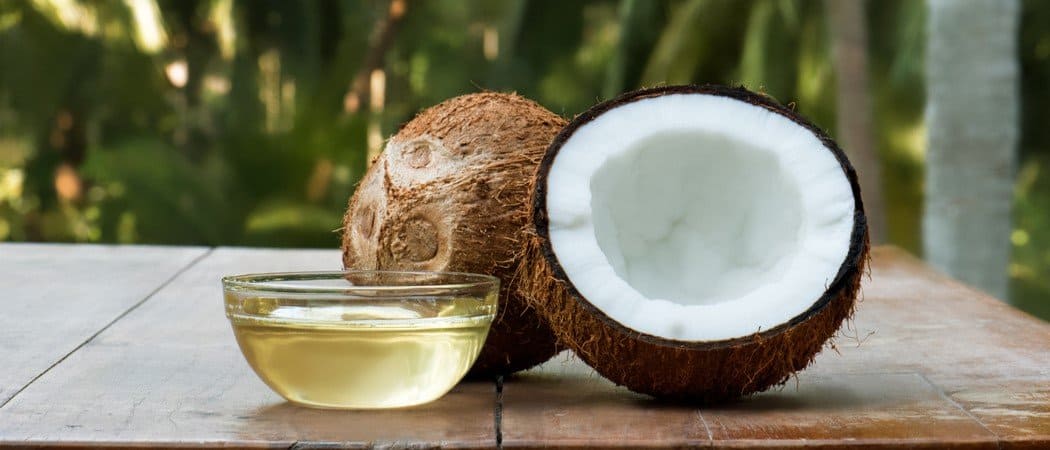
Birds enjoy tasty and nutritious coconuts all year round.
©Thasneem/Shutterstock.com
Coconut is an excellent human food you can safely feed to birds. Hang up a coconut half and watch birds flock to its healthy fats.
However, you should never feed desiccated coconut to birds. Desiccated coconut is dried, flaked coconut. It’s dangerous because it absorbs moisture and swells up. In a bird’s stomach, this has devastating consequences.
3. Pet Food
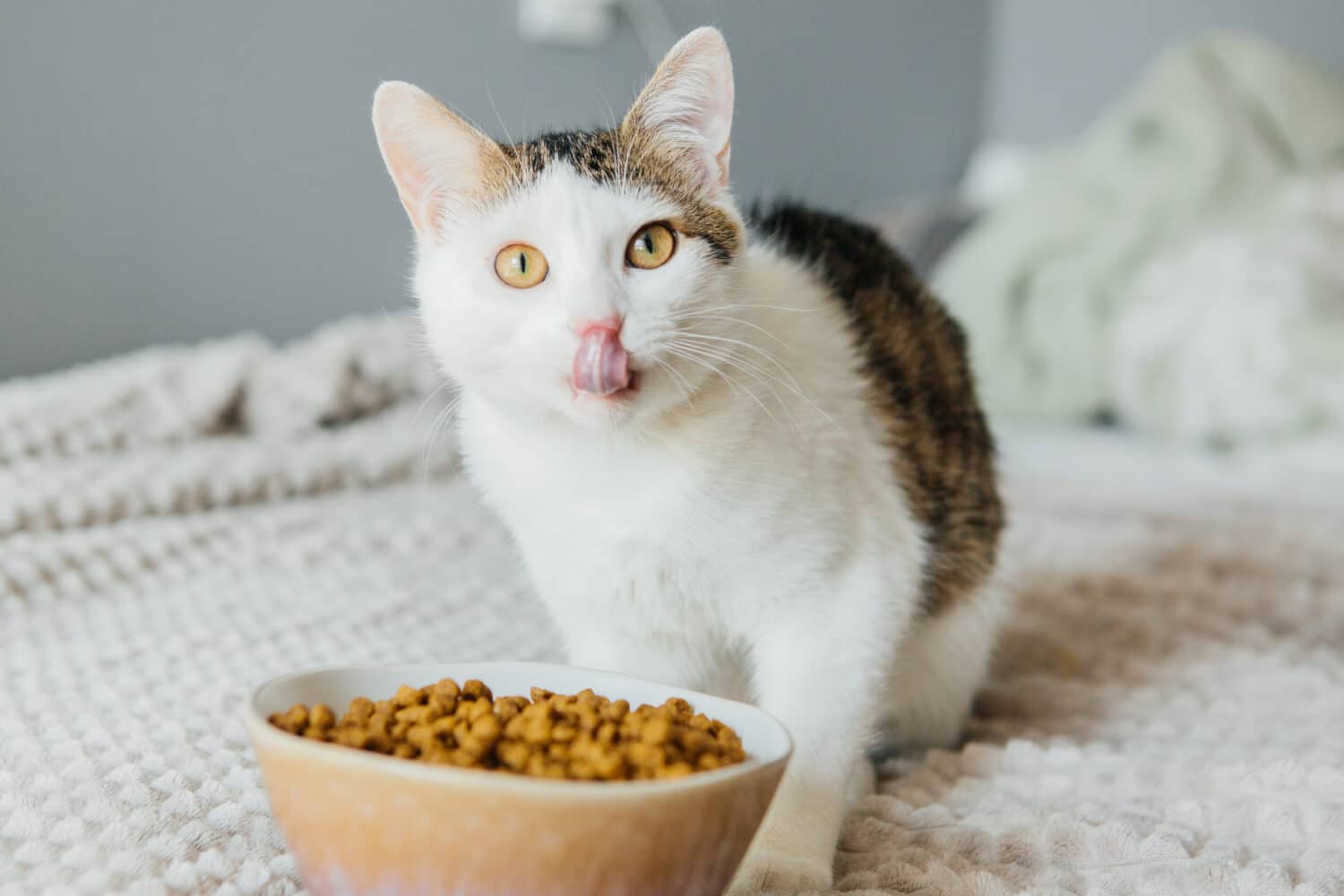
Not just for cats – wet and dry cat food is a meaty boost for omnivorous birds like grackles.
©AlexanderDubrovsky/Shutterstock.com
Not exactly human food, but something many of us have in the cupboard is cat or dog food. Omnivorous birds like robins, blackbirds, and corvids eat dry or wet pet food as a substitute for worms, insects, and beetles when the ground is dry or frozen.
Soak dry food a little first, to prevent larger pieces choking birds.
4. Fruit
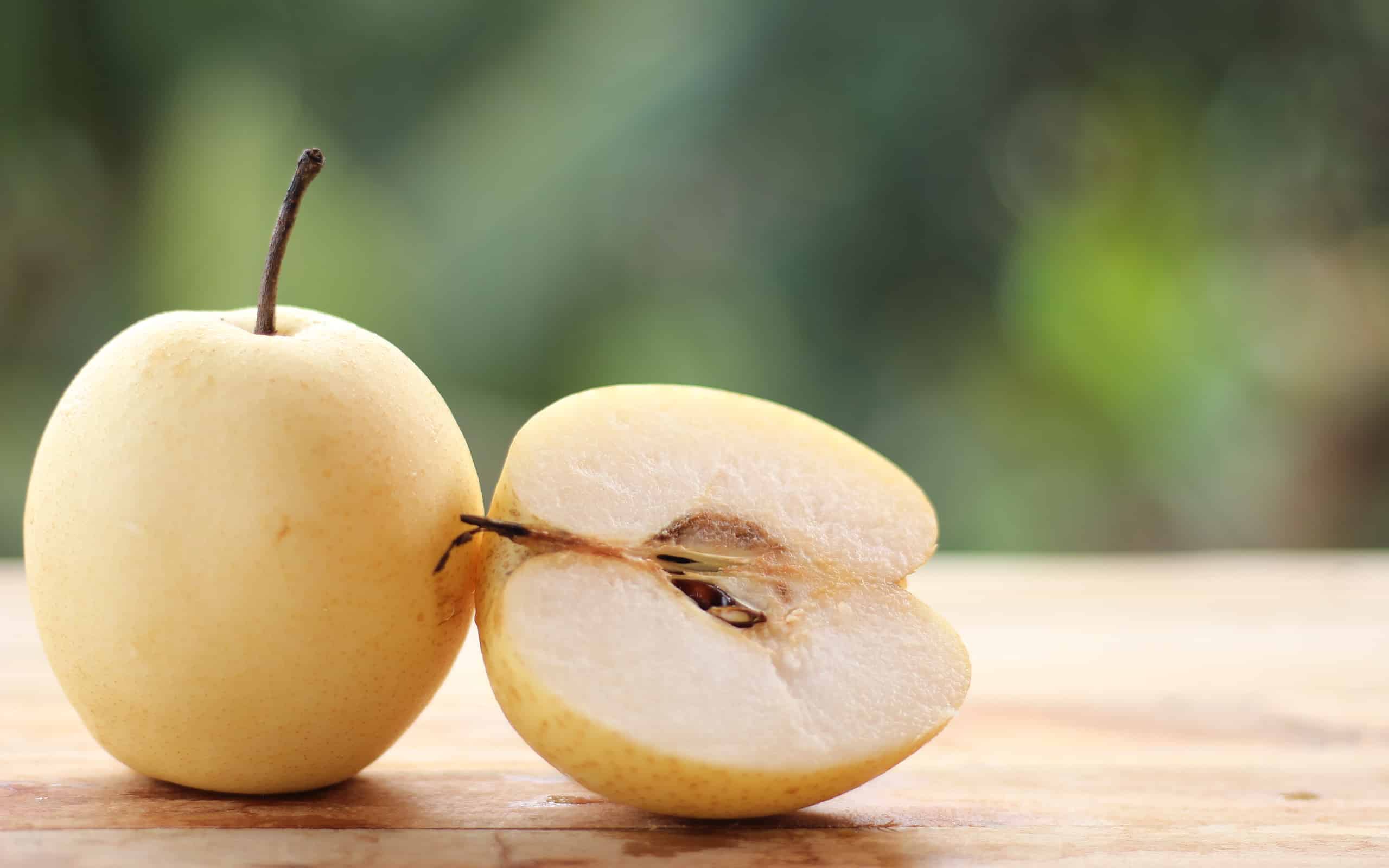
Blackbirds, thrushes, and corvids love fruit. Cut out the seeds first.
©Ahmad Wahyu/ via Getty Images
Many birds love fruit such as apples, pears, grapes, currants, and sultanas. Fruit-eating birds including corvids and thrushes. If you have a fruit tree, leave windfalls for hungry birds to peck apart.
Avoid avocados because their acidic fatty acids cause heart damage. You should also avoid offering fruit pips and seeds because they contain a tiny amount of cyanide. One or two won’t hurt, but regularly, fruit seeds are troublesome.
5. Eggs
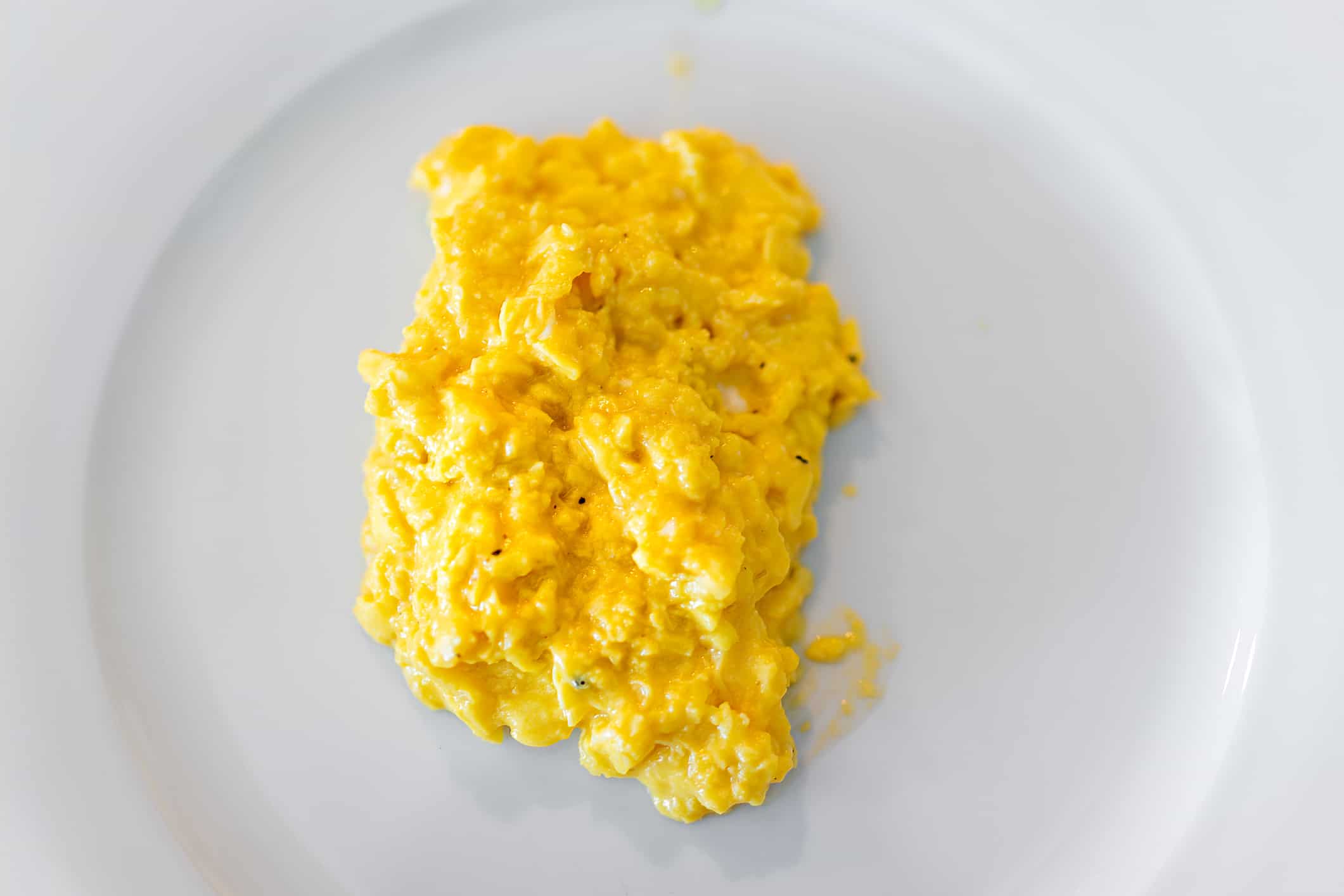
Plain, unsalted or spiced scrambled eggs provide birds with protein.
©iStock.com/ito:krblokhin
It sounds weird, but a human food you can safely feed to birds is egg!
Scrambled or boiled eggs are great for wild birds. Protein and calcium-packed eggs support chicks and adult birds with energy and muscle building nutrients. Crushing a little shell in the mix boosts calcium that supports bone growth, too.
6. Peanut Butter
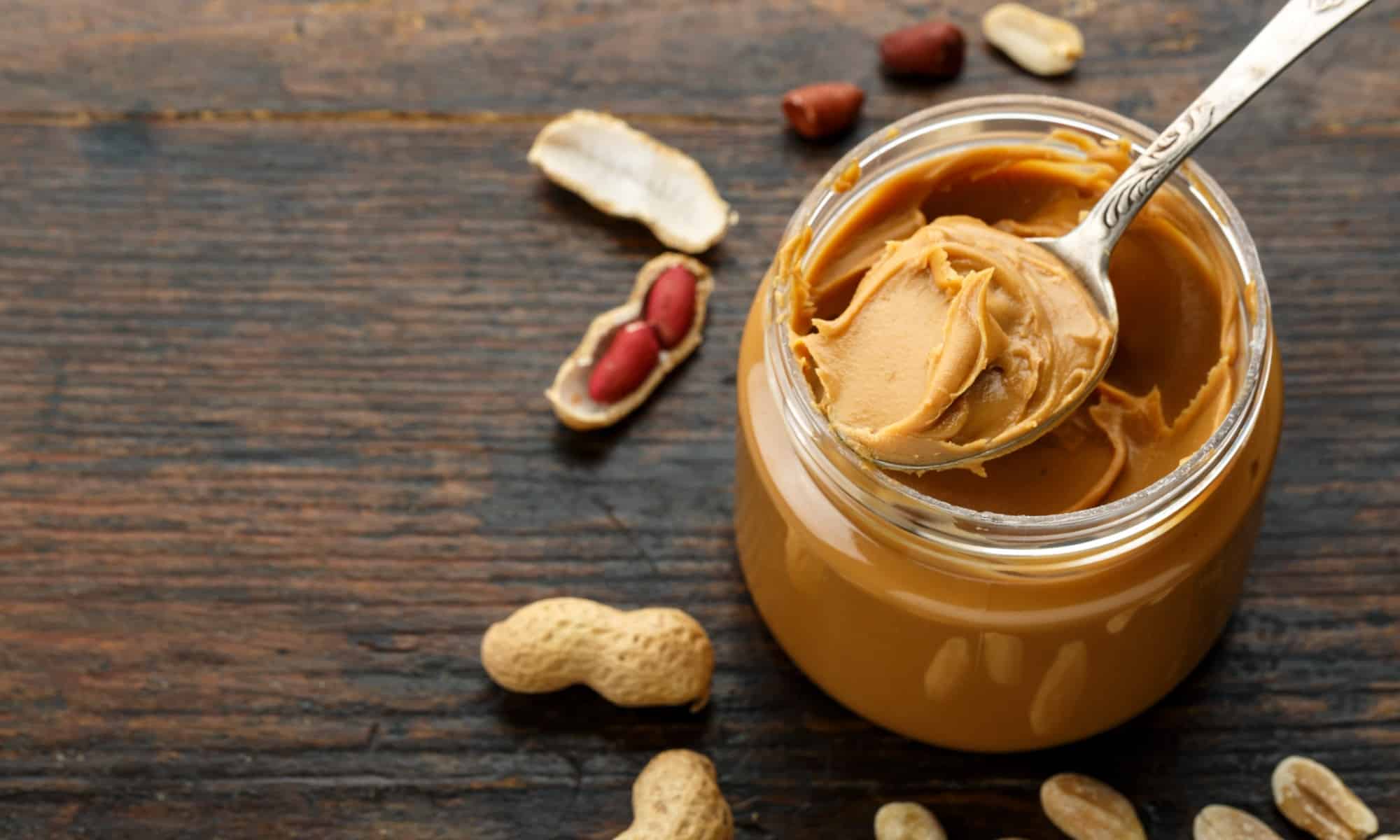
Nutritious peanut butter provides high energy in the cold winter months.
©iStock.com/Sanny11
Tasty and high in calories, peanut butter is a great winter boost for hungry birds. Its rich and nutritious energy keeps birds’ feathers healthy and provides energy to keep them warm. You can buy specific bird peanut butter, but it’s just as effective to smear some inside a used coconut half.
7. Nuts
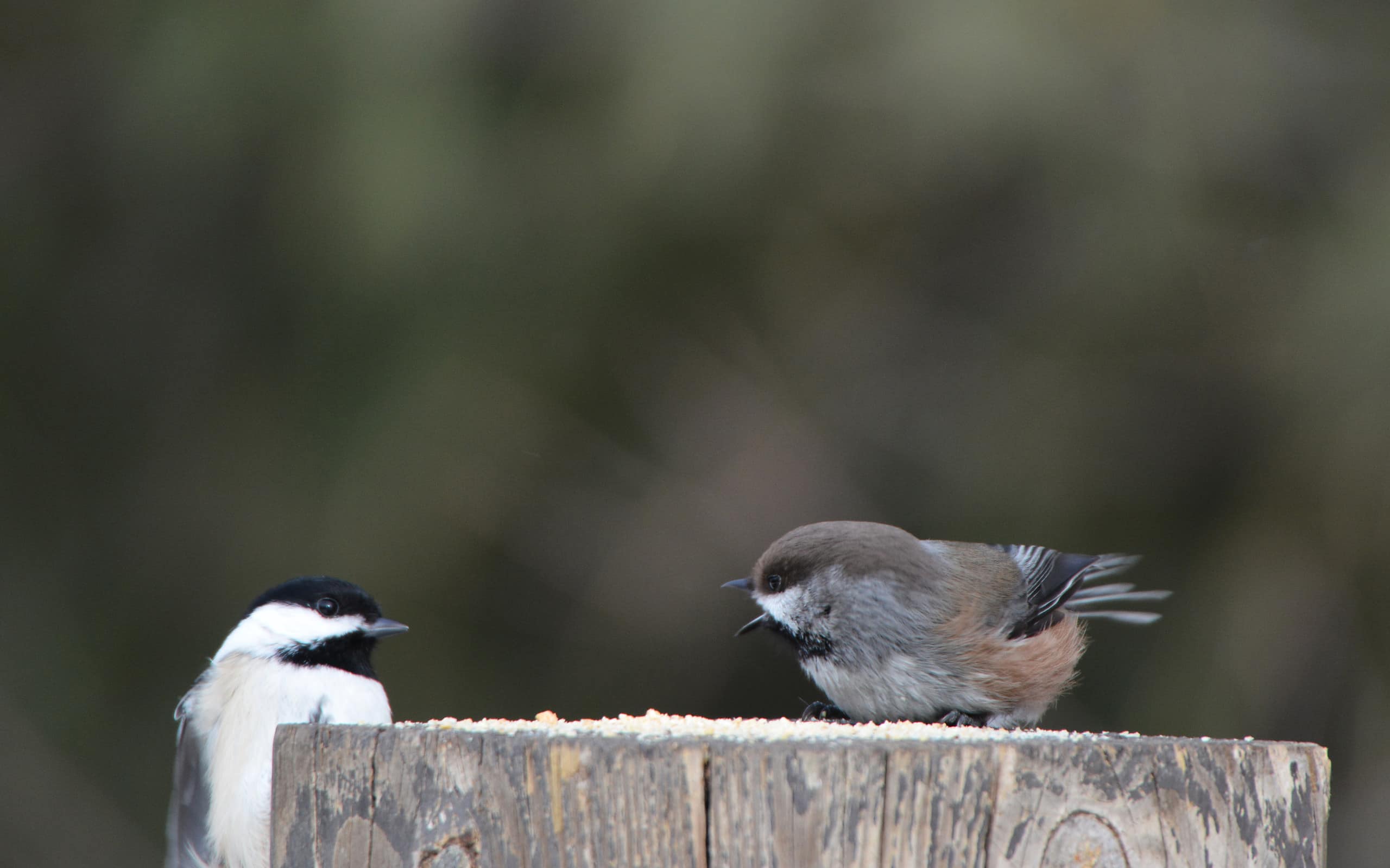
Crushed nuts are appreciated by a wide range of yard birds.
©Carol Hamilton/iStock via Getty Images
Plain, unsalted, unsmoked nuts are energy-rich and beneficial for birds as well as humans. Walnuts, brazils, cashews, pecans, and almonds are all great choices. Don’t offer chocolate-covered nuts because chocolate contains bird-toxic caffeine and theobromine.
Break up nuts before offering them to birds, because fledglings can choke on large pieces. If you offer peanuts, put them in a mesh bird feeder so adults can only break off small, non-choking segments.
8. Pastry
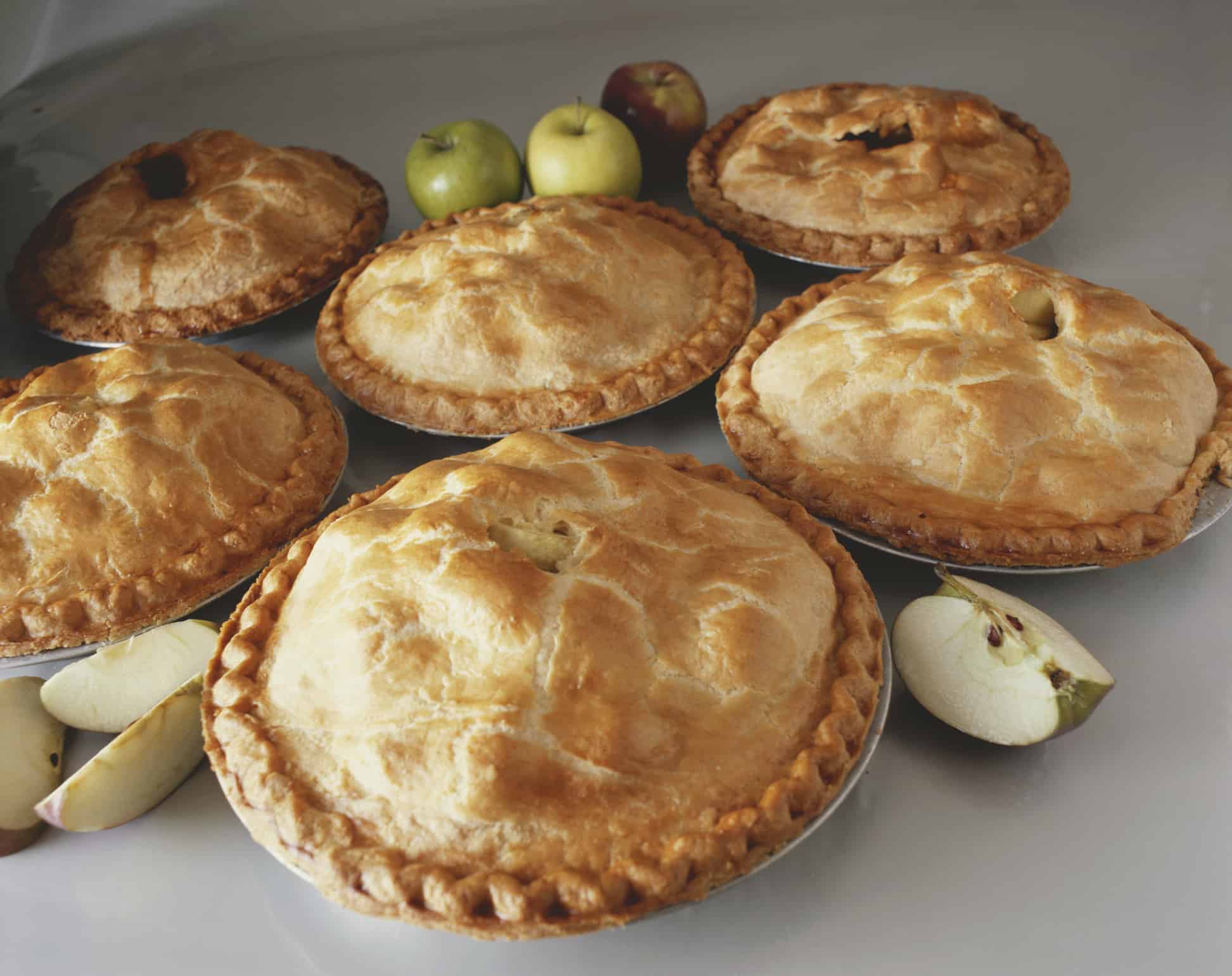
Raw or cooked leftover pastry is an energy rich treat for yard birds.
©Tom Kelley Archive/Retrofile RF via Getty Images
Cooked or uncooked pastry contains lard and butter, which are useful fats for hungry wild birds. Break pastry into small pieces, and offer fresh water, because it dries out in the sun and wind. Only offer pastry that isn’t packed with salt or sugar.
9. Hard Cheese
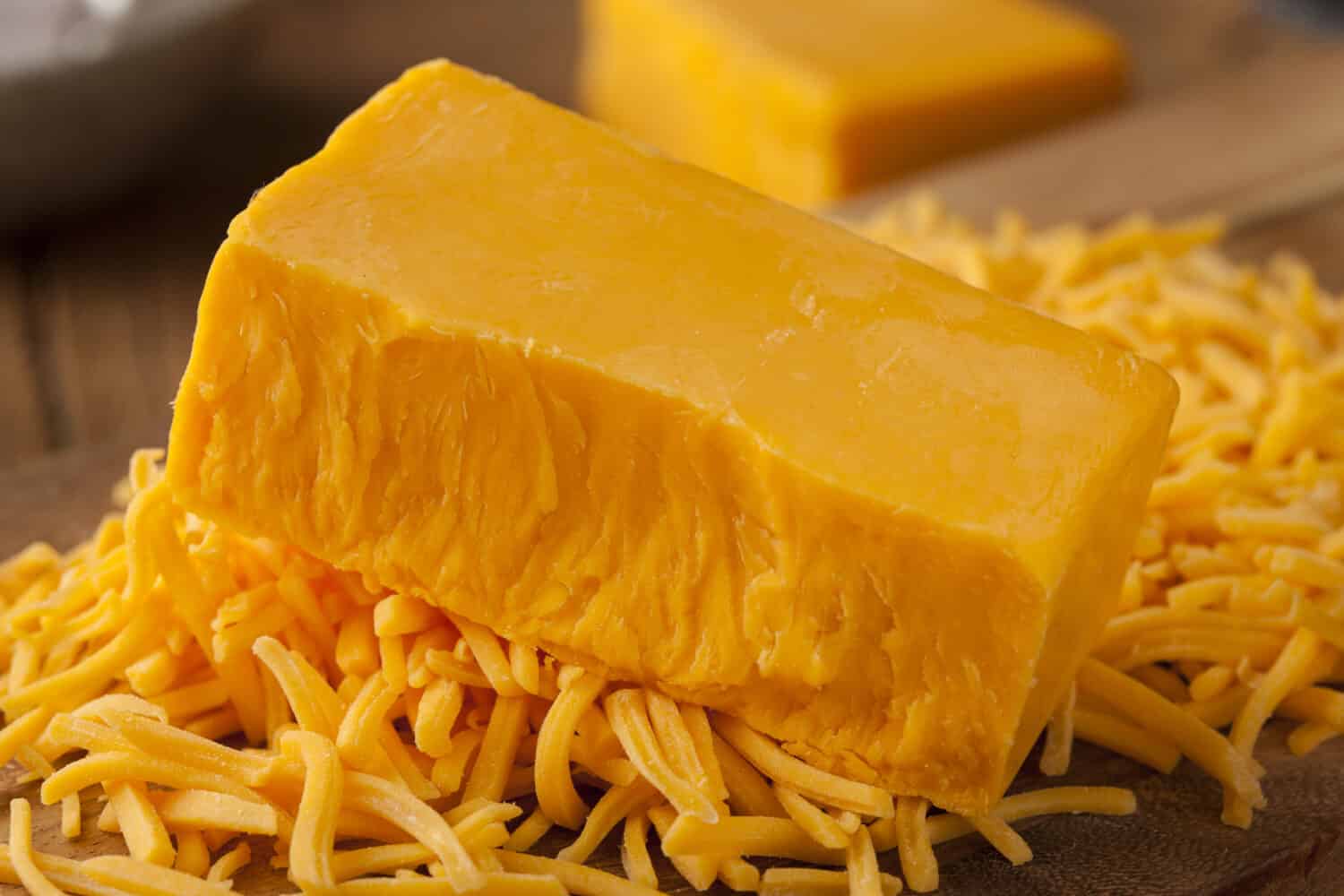
Grated, mild hard cheese is a protein-packed treat for robins.
©Brent Hofacker/Shutterstock.com
High-fat cheese provides a welcome boost of energy in the winter months. It’s packed with calcium for healthy beaks and bones.
Choose a hard, mild cheese, grate it, and sprinkle a little on the bird table. Robins, thrushes, corvids, and blackbirds love it, but don’t offer soft cheese, bleu cheese, or any cheese with bird-toxic onions or chives.
10. Peas and Sweetcorn
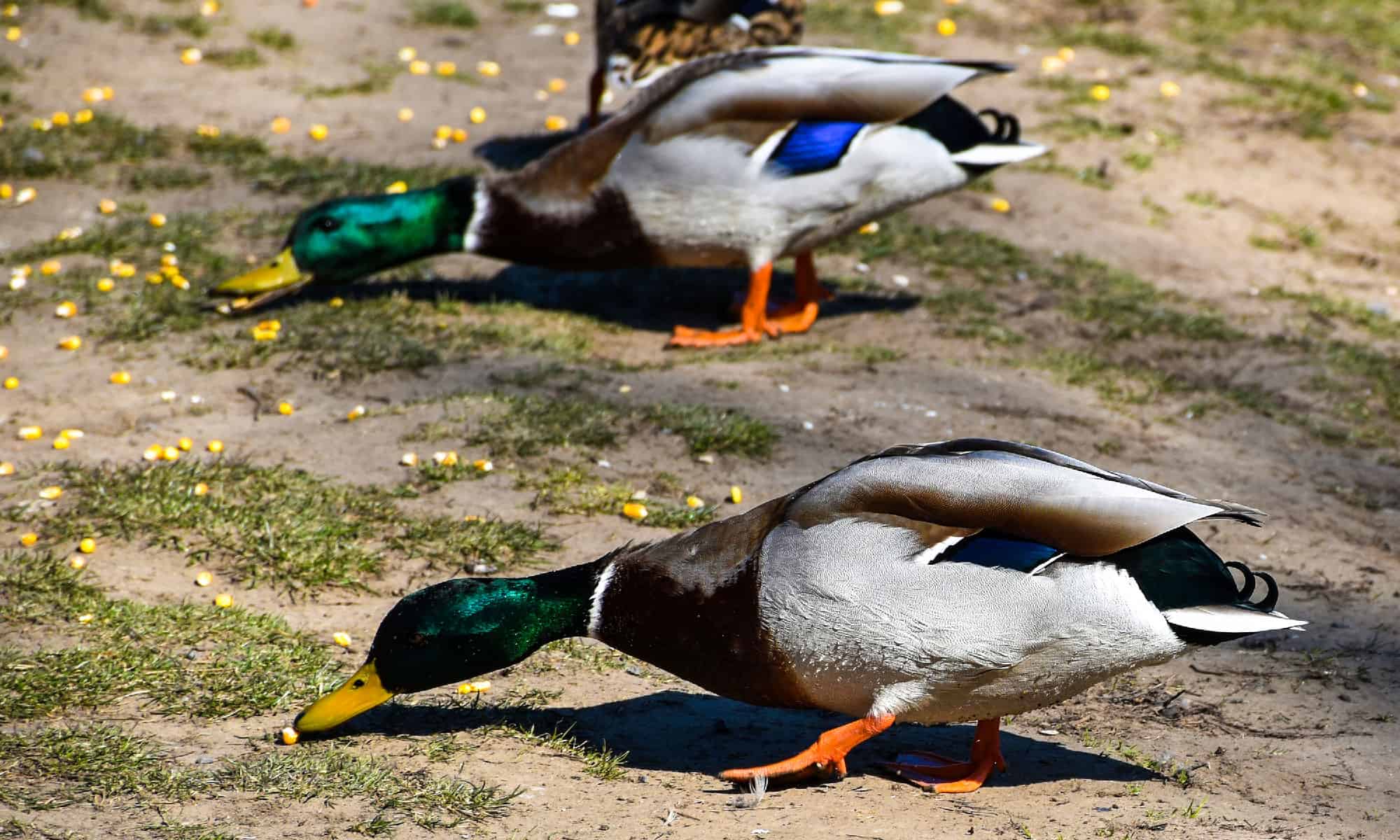
Sweetcorn and peas are a much better choice for ducks than bread.
©Laszlo66/Shutterstock.com
A top-drawer food for birds like ducks and moorhens, peas and sweetcorn provide lots of vitamins and minerals. If you’re planning to feed the ducks, offer frozen, tinned or fresh veggies instead of nutrient-deficient bread.
11. Lettuce, Kale, and Cabbage
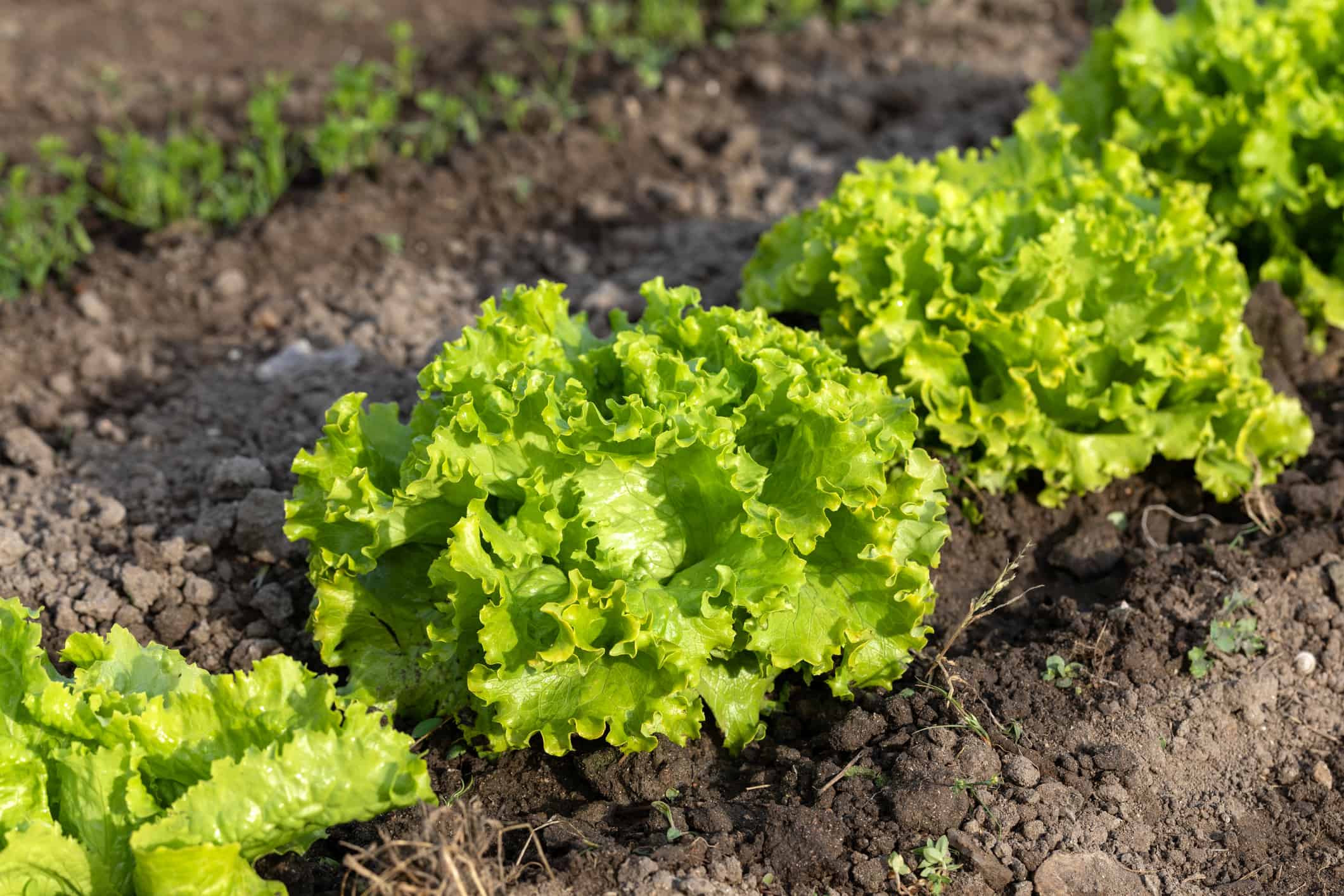
Aquatic weed eating ducks enjoy leftover slightly wilted lettuce!
©Thomas Pajot/iStock via Getty Images
You won’t spot many songbirds pecking at lettuce, but pigeons, doves, and most water birds enjoy its leafy goodness. Ducks in particular love lettuce, kale, and cabbage. They naturally eat aquatic weeds, so healthy human-grown greens are always appreciated.
12. Cooked Potatoes
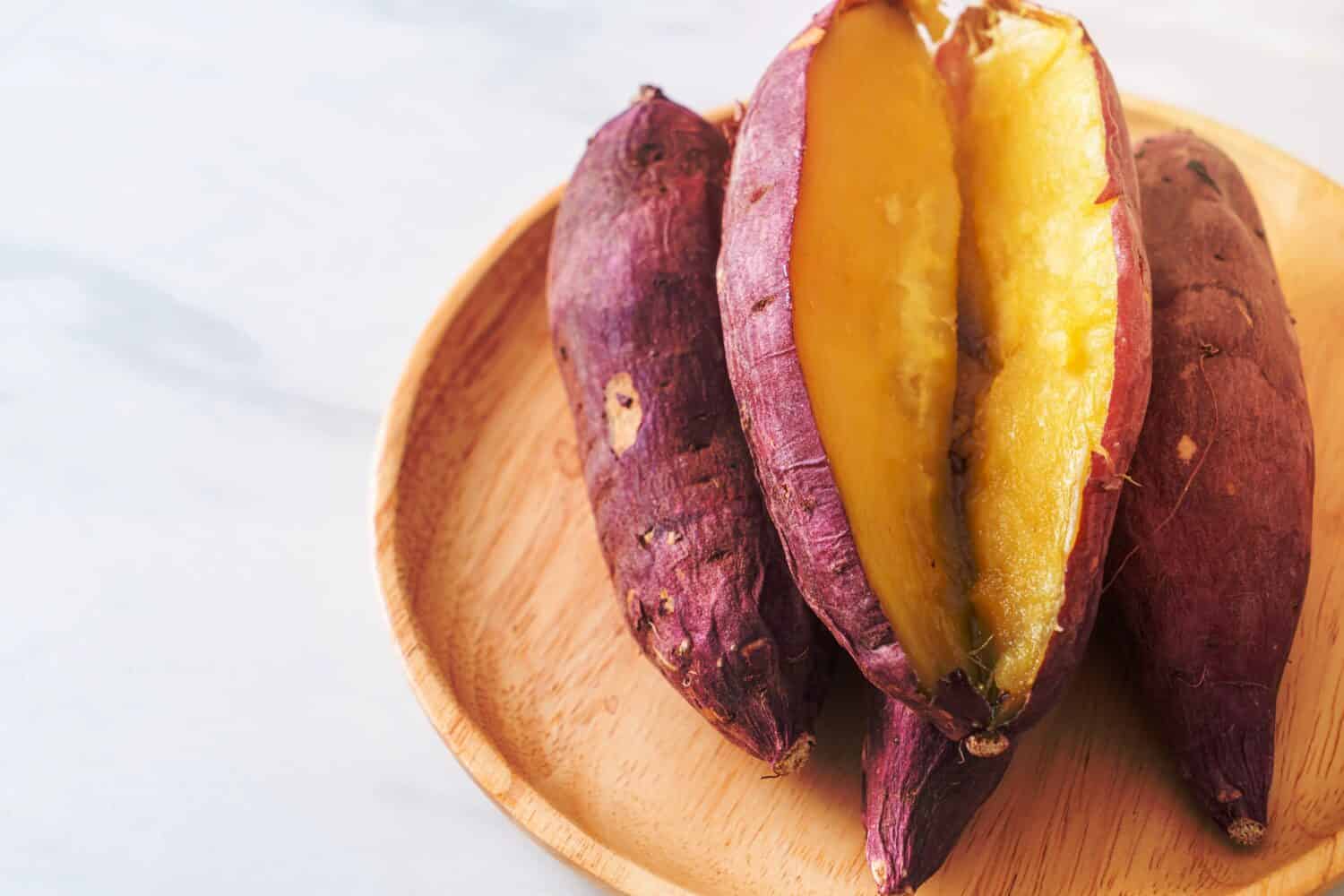
Large birds like crows and grackles enjoy cooked potatoes.
©Sorin85Banica/Shutterstock.com
Boiled and cooled mashed potatoes offer a huge boost of carbohydrates to hungry birds. Corvids like grackles and crows tuck into baked sweet potatoes, jacket spuds, and boiled new potatoes with dinosaur-like enthusiasm.
Don’t offer potatoes with salt or butter though, high salt isn’t good for birds. That includes roasted potatoes, chips, and crisps.
13. Rice
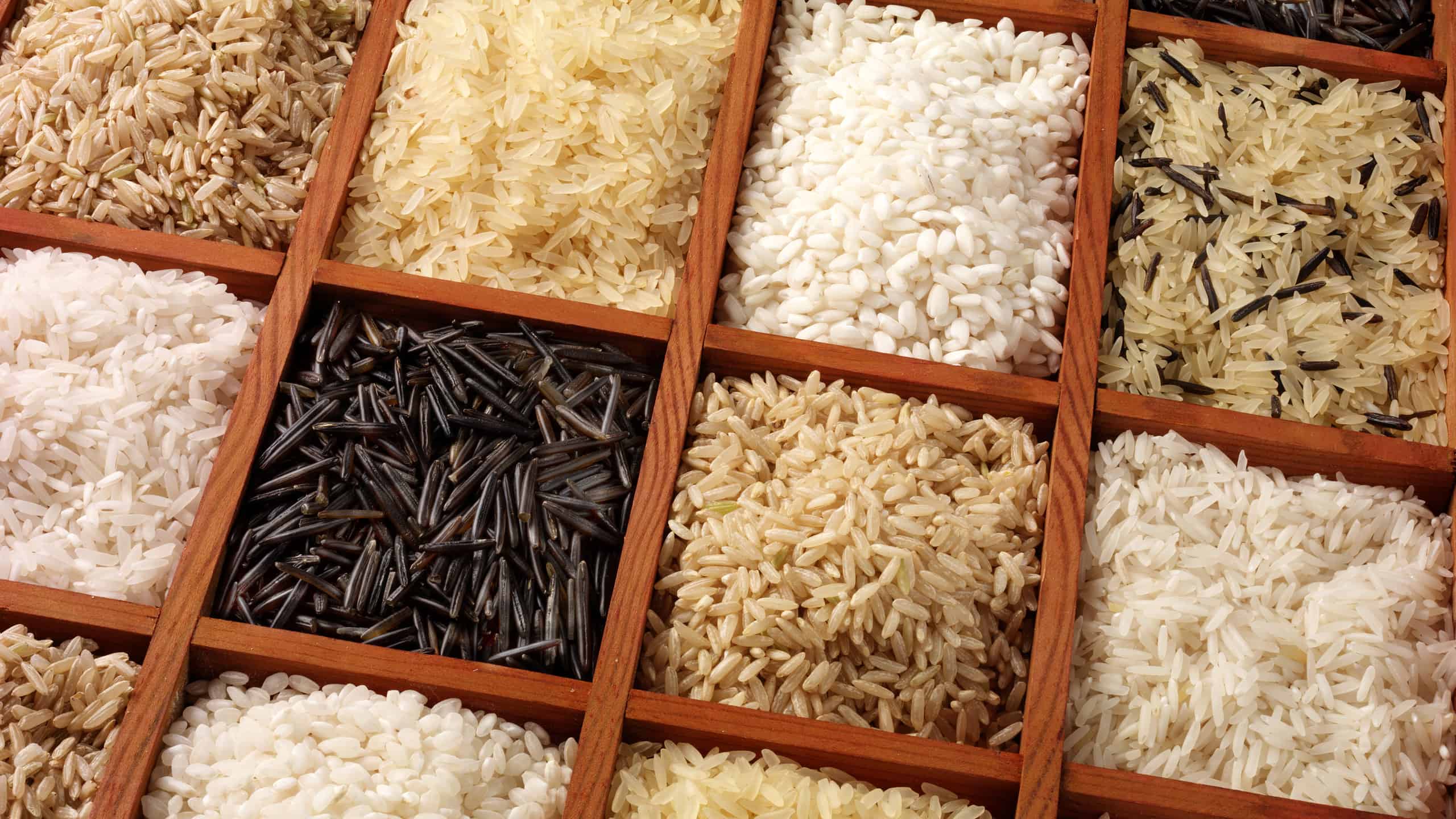
Cooked or uncooked rice is a carb-laden boost for garden birds.
©CKP1001/Shutterstock.com
Carb-heavy rice is another good human food for birds. Offer cooked white or brown rice, without salt, that’s cooled down. You can also offer uncooked rice!
Small songbirds are unlikely to take rice, but large birds that enjoy rice include doves, pigeons, pheasants, woodpeckers, grackles, jays, and crows.
14. Cooked Pasta
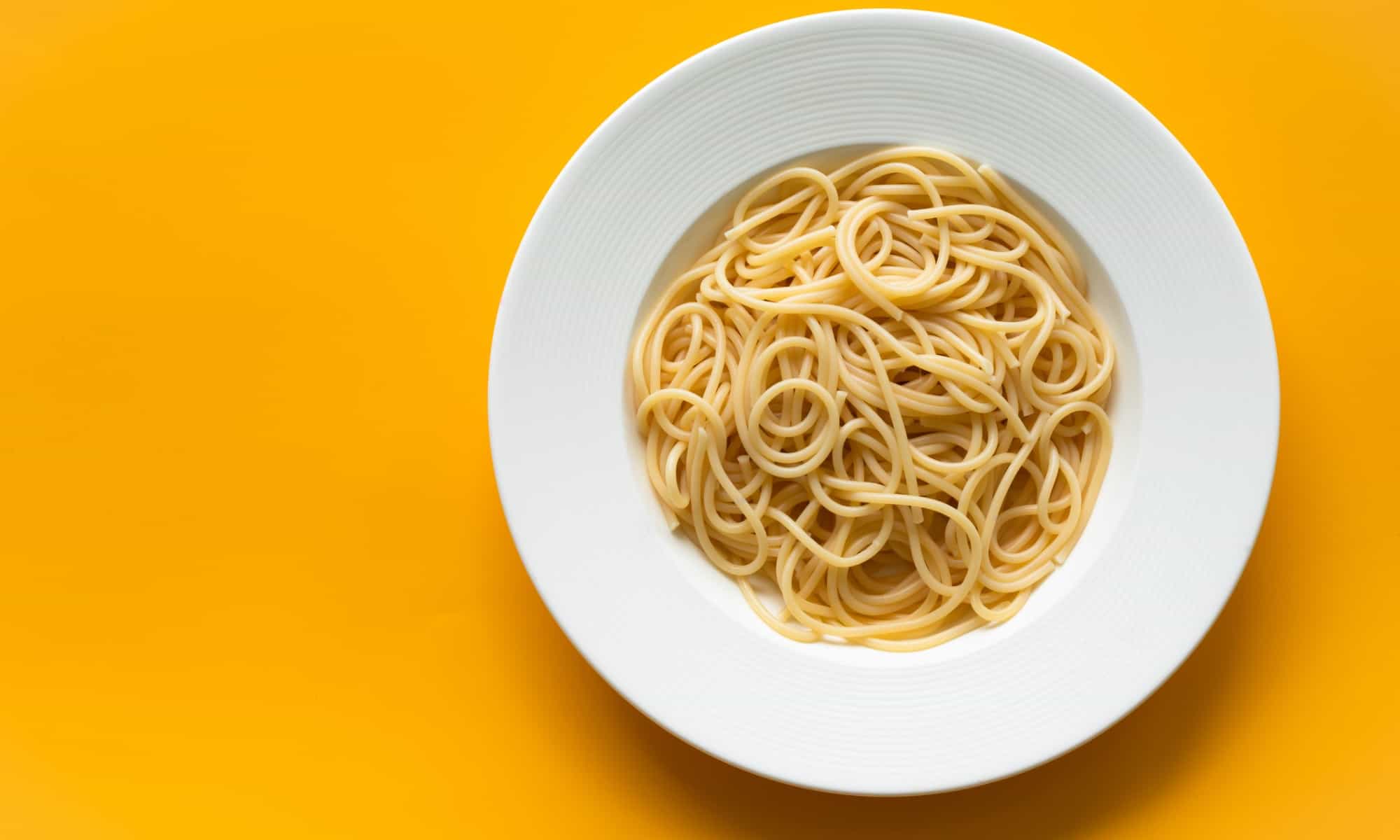
Chopped-up cooked spaghetti is wolfed down by corvids and pigeons.
©iStock.com/Vasin Hirunwiwatwong
Plain-cooked pasta is a human food for birds that attracts larger corvids, pigeons, and doves to the table. Chop leftover cooked pasta and wash off any sauce because oil, salt, sugar, and spices can make birds sick.
15. Bread
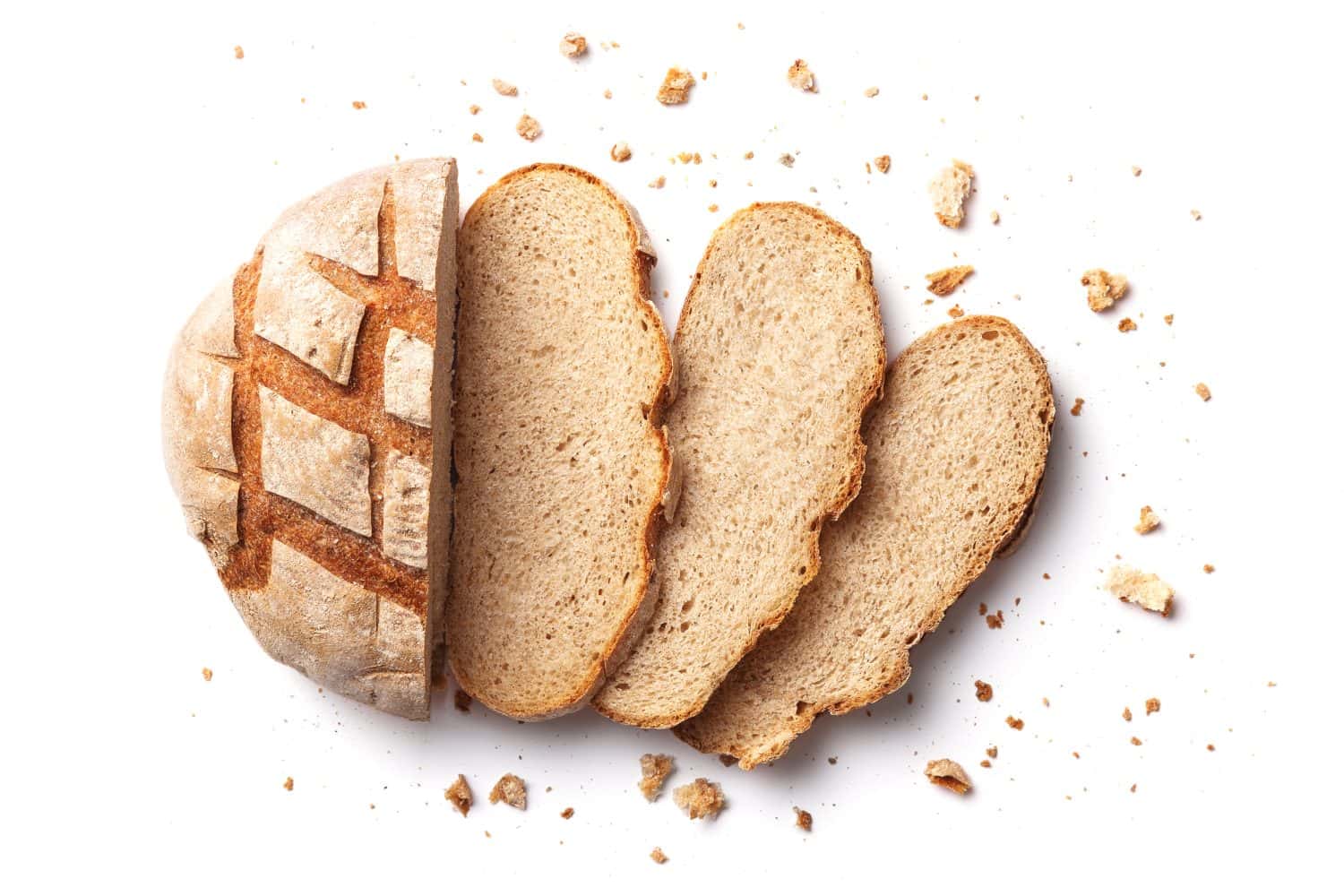
Bread isn’t great for birds, but it’s OK on occasion.
©virtu studio/Shutterstock.com
Ok, so we said that bread wasn’t great, but if that’s all you have, and your yard birds are cold and hungry, then it’s fine to feed small amounts. Brown bread is the best choice.
Soak bread to soften it first, then crumble slices onto a bird table. If you have any leftover lard or suet, try melting in your breadcrumbs and leaving it to solidify.
16. Breakfast Cereal
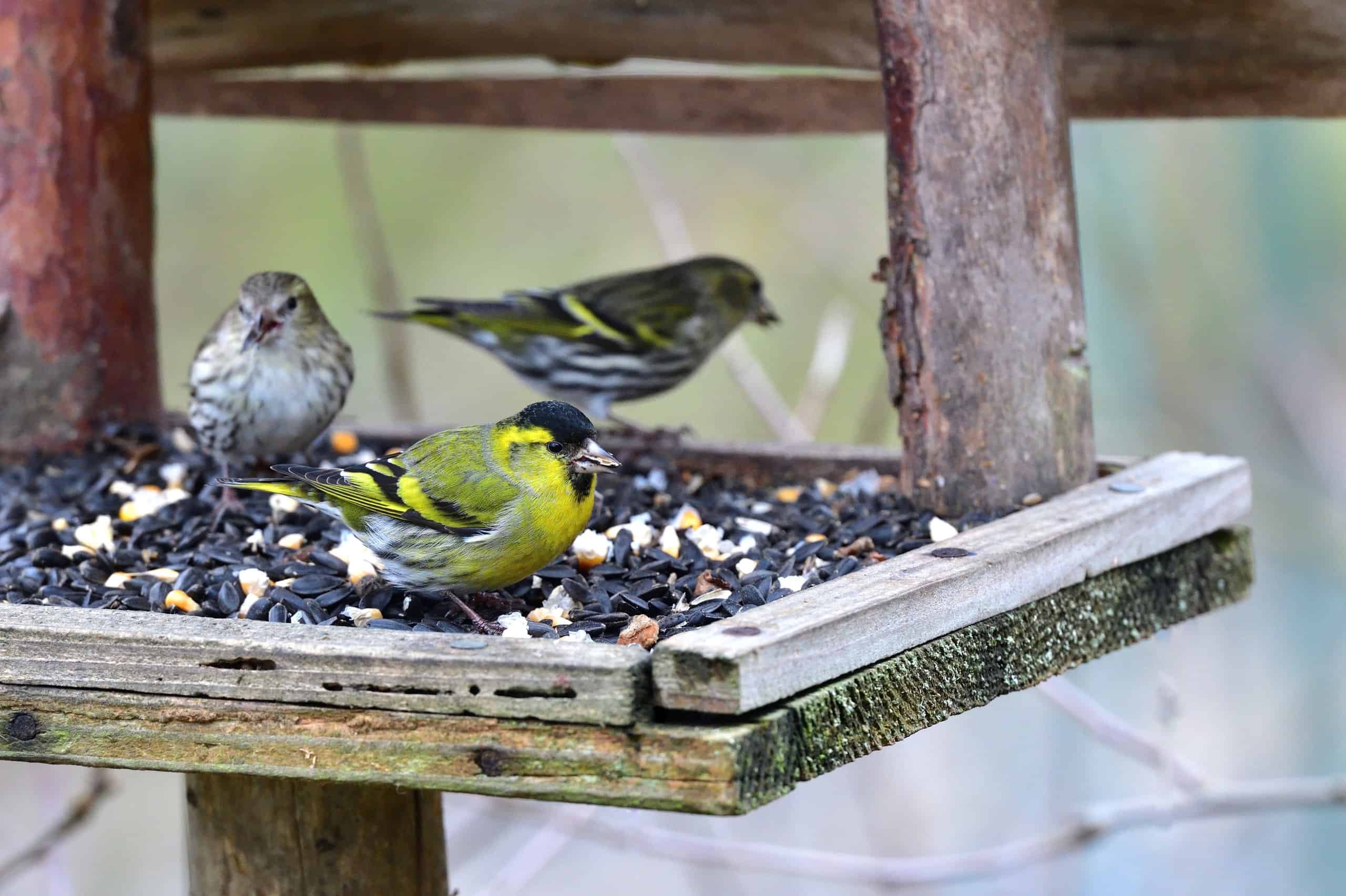
Crush low sugar breakfast cereals to boost your bird seed offerings.
©Klimek Pavol/Shutterstock.com
Many birds enjoy breakfast cereals because they are full of oats, wheat, and seeds, which are foods that birds eat in the wild. Offer cereal to birds, but don’t give them sugary cereal or anything chocolate or marshmallow-infused.
Break up cereal and sprinkle the crumbs on a bird table. If you have a few seeds, pop those on too. The mixture will encourage a range of attendees.
17. Uncooked Oats
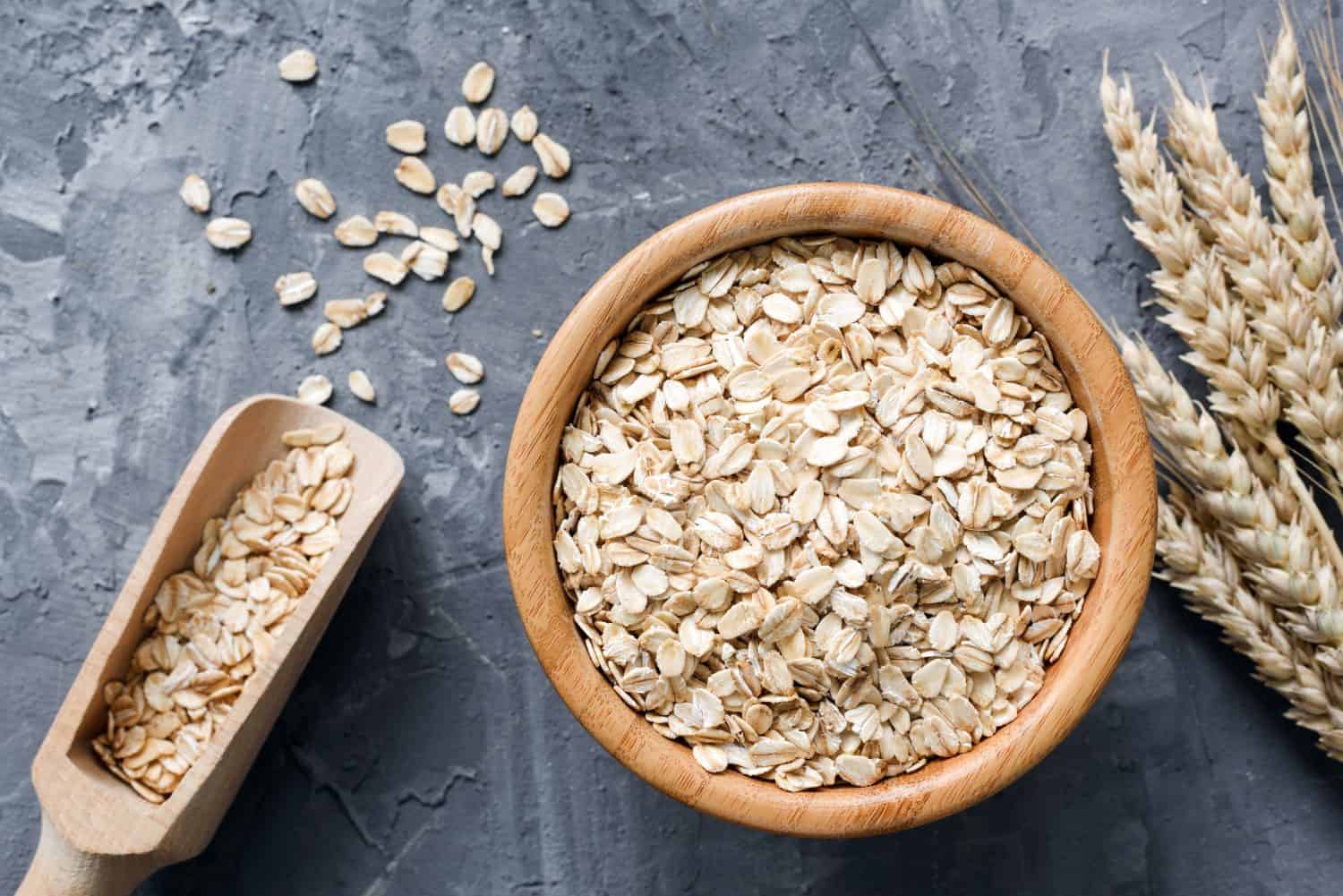
Crushed uncooked oats are a popular human food for birds, but don’t offer cooked oats.
©Vladislav Noseek/Shutterstock.com
Nutritious, raw porridge oats are a real treat for yard birds, blackbirds really love them. Oats provide high energy to keep winter birds warm.
Don’t feed cooked oats such as porridge because wet oats can solidify around a bird’s beak, in some cases even gluing it shut. Wet porridge wiped onto feathers is another issue because it damages their waterproofing. Stick to raw oats and the birds will thank you.
Human Foods To Avoid Giving Birds
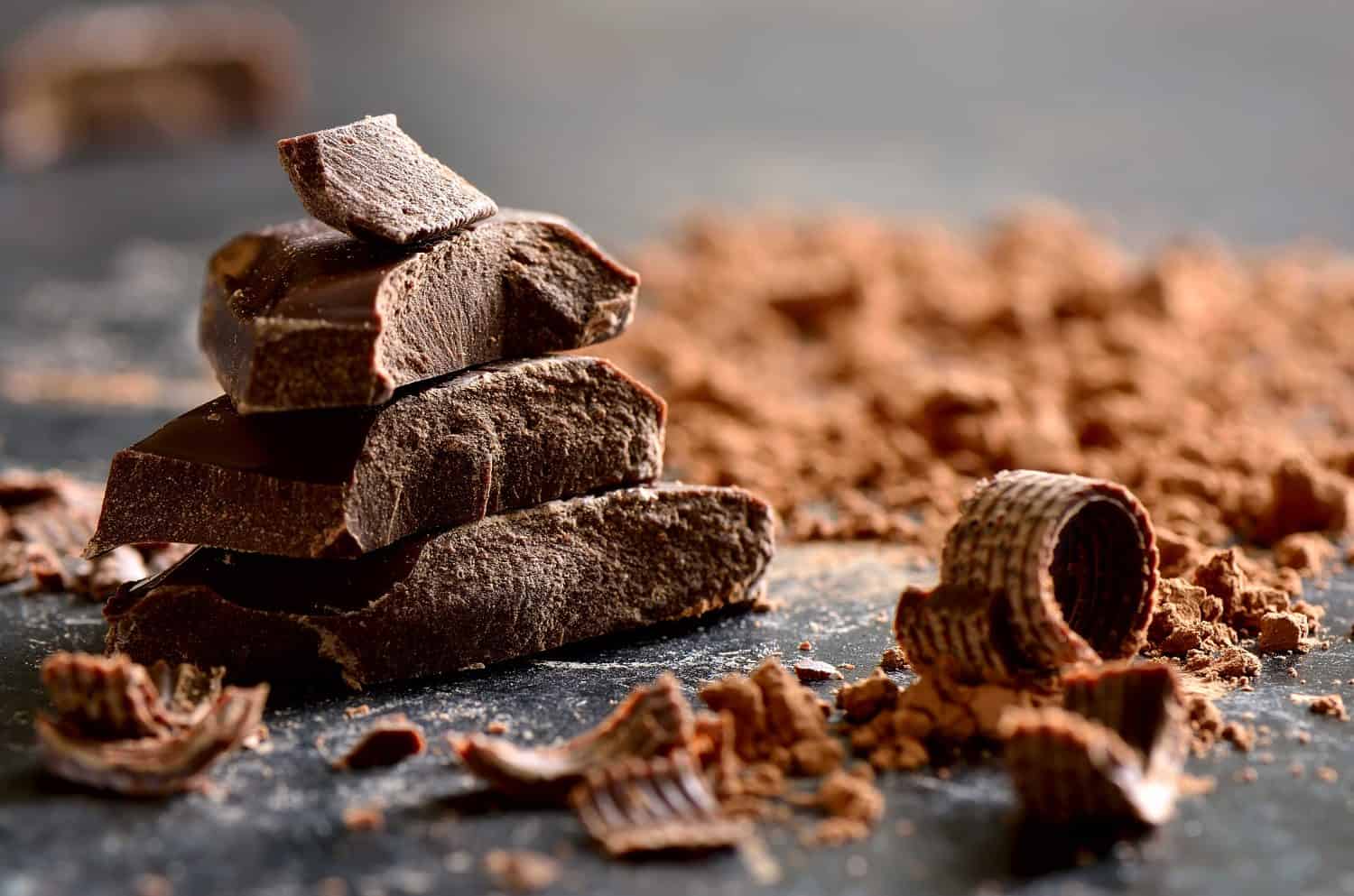
Chocolate is bad for garden birds, don’t offer chocolate in any form.
©Fortyforks/Shutterstock.com
Here’s a quick list of human foods that birds should not eat:
Chocolate, spices, salt, sugar, avocado, fruit pips, onions, caffeine, desiccated coconut, cooked porridge oats, or any moldy, out-of-date food.
The photo featured at the top of this post is © WildlifeWorld/Shutterstock.com
Thank you for reading! Have some feedback for us? Contact the AZ Animals editorial team.






